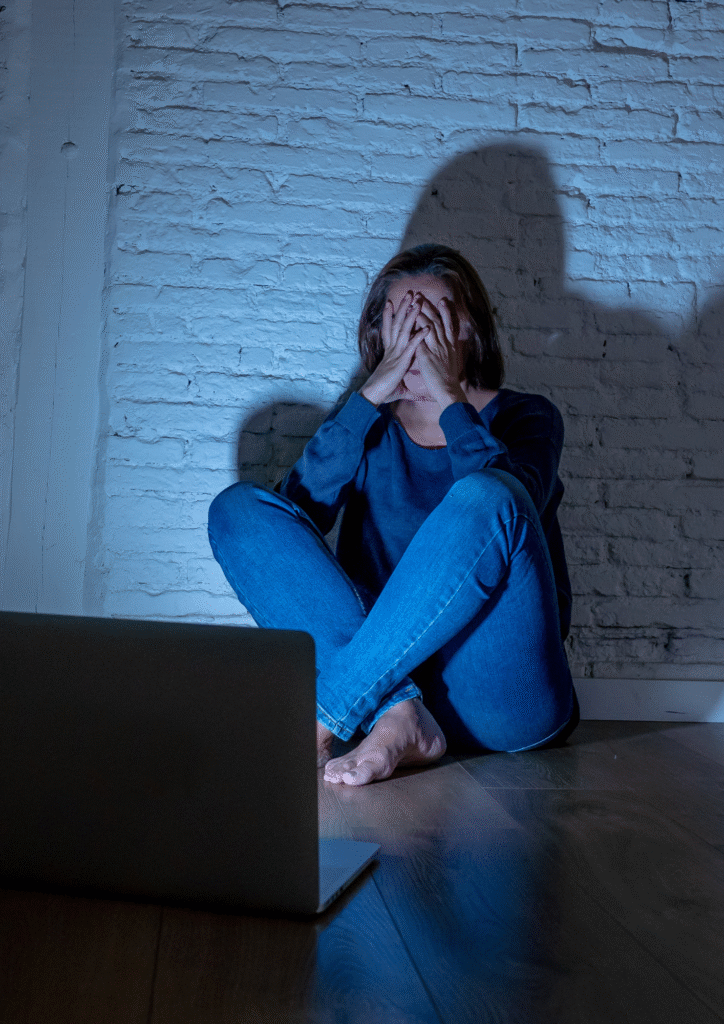
Breaking the Cycle
Breaking the Cycle: How to Help Stop Gender-Based Violence
We’ve explored the hidden facets of gender-based violence (GBV) – from the visible marks of physical abuse to the invisible scars of emotional manipulation, the devastating reach of sexual assault, the pervasive grip of economic control, and the new battlegrounds of digital harm. What becomes clear from this journey is that GBV is not an isolated incident; it’s a deeply entrenched issue that harms individuals, families, and communities. But here’s the crucial truth: stopping gender-based violence is not an impossible dream. It requires a collective, unwavering effort from individuals, communities, and institutions, starting right here in Suriname and extending globally.
Every one of us has a role to play in breaking the cycle of violence and fostering a society built on respect, equality, and safety. It might seem daunting, but even the smallest actions, when multiplied, create powerful change.
1. Educate Yourself and Others: Understanding is Power
The first step to dismantling GBV is to understand it. As we’ve seen, violence takes many forms, and not all of them leave visible marks.
- Learn the Definitions: Familiarize yourself with what constitutes physical, sexual, psychological, emotional, digital, and economic violence. Understanding these nuances helps you recognize abuse when it occurs, whether in your own life or in the lives of others.
- Challenge Misconceptions: Many myths surround GBV (e.g., “it’s a private matter,” “they asked for it,” “it’s a cultural norm”). Actively learn to identify and challenge these false narratives.
- Share Knowledge: Once you’re informed, share that knowledge. Engage in conversations with friends, family, and colleagues. Simple discussions can open eyes and encourage others to learn. Knowledge is a shield and a weapon against ignorance.
2. Speak Out: Your Voice Can Shatter Silence
Silence is violence’s greatest ally. When we stay quiet, we implicitly condone abusive behaviors and allow them to flourish. Speaking out doesn’t always mean grand gestures; it can start small:
- Challenge Harmful Jokes and Stereotypes: Don’t laugh at or ignore jokes that demean women, trivialize sexual assault, or promote aggressive masculinity. Politely but firmly say, “That’s not funny,” or “That’s harmful.”
- Intervene Safely: If you witness a situation that looks like it could escalate into violence (e.g., someone being verbally abusive or controlling), consider safe intervention strategies. This could mean distracting the abuser, creating a diversion, or directly asking the potential victim if they are okay and need help (e.g., “Are you alright? Is everything okay here?”).
- Express Disapproval: Let it be known that you do not tolerate abuse in any form. Your stance helps set a community standard.
3. Support Survivors: Believe, Listen, Connect
For survivors, the journey to healing often begins with being believed and feeling supported.
- Believe Them: When someone confides in you about experiencing violence, your primary role is to believe them. Avoid questioning their story or blaming them. Your validation is incredibly powerful.
- Listen Without Judgment: Create a safe space for them to share their experiences. Listen actively, empathetically, and without judgment. Let them lead the conversation.
- Offer Non-Judgmental Support: Ask them what they need and how you can help. This could be practical assistance (e.g., helping them find resources, offering a safe place to stay temporarily, accompanying them to appointments) or simply being a consistent, supportive presence.
- Connect to Resources: Be aware of local and national resources dedicated to supporting survivors of GBV. In Suriname, remember organizations like the Women’s Rights Centre (WRC), STICRIS women’s shelter, the Foundation Stop Violence against Women (Stichting Stop Geweld Tegen Vrouwen), and the 123 help line (24 hours available for adults who are victims of domestic violence or gender-based violence). Knowing these can be life-saving.
4. Advocate for Change: Beyond Individual Actions
While individual actions are crucial, systemic change requires collective advocacy.
- Support Organizations: Donate to, volunteer with, or raise awareness for local and international organizations working to end GBV. These organizations provide vital services, conduct research, and advocate for policy reform.
- Advocate for Stronger Laws and Policies: Support initiatives that aim to strengthen laws against all forms of GBV, improve law enforcement responses, ensure access to justice, and provide better protection for survivors. In Suriname, this means supporting ongoing efforts to update legal frameworks and ensure their effective implementation.
- Champion Gender Equality: Recognize that GBV is rooted in gender inequality. Support initiatives that promote equal opportunities, equal pay, equal representation, and challenge patriarchal norms. A more equal society is inherently safer for everyone.
- Demand Accountability: Hold institutions (governments, police, legal systems) accountable for their role in addressing and preventing GBV.
5. Promote Healthy Relationships: Model Respect and Boundaries
The best prevention is to foster environments where violence cannot thrive. This starts with how we interact with others and what we teach future generations.
- Model Respectful Communication: Show what healthy communication looks like – active listening, expressing needs clearly, and resolving conflicts without aggression or control.
- Teach and Practice Consent: Ensure that consent is understood as enthusiastic, continuous, and freely given, not just in sexual contexts but in all interactions. Teach children about bodily autonomy from a young age.
- Challenge Harmful Gender Norms: Encourage boys to express emotions beyond anger and girls to be assertive and strong. Break down rigid ideas about masculinity and femininity that can contribute to violence.
- Set and Respect Boundaries: Learn to establish healthy boundaries for yourself and always respect the boundaries of others. This is fundamental to any healthy relationship.
Breaking the cycle of gender-based violence is a monumental task, but it is one we must undertake together. Every conversation, every act of support, every challenge to harmful norms, and every step towards equality moves us closer to a Suriname and a world where every individual can live free from fear, coercion, and harm. Your involvement matters. Let’s commit to being part of the solution.
Do you have any further questions or specific areas you’d like to delve into regarding stopping GBV?






Responses